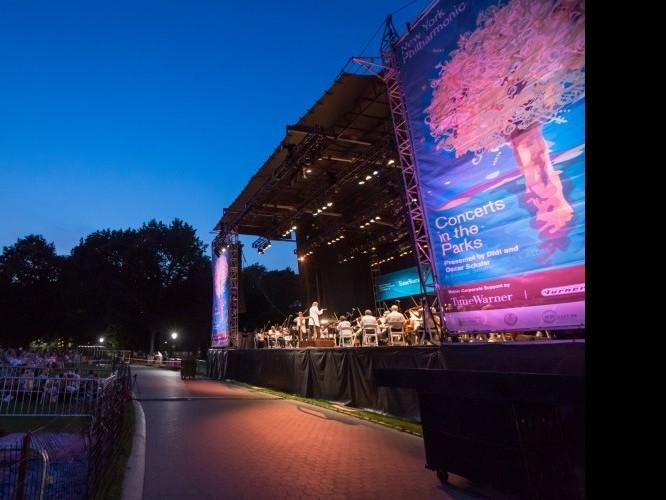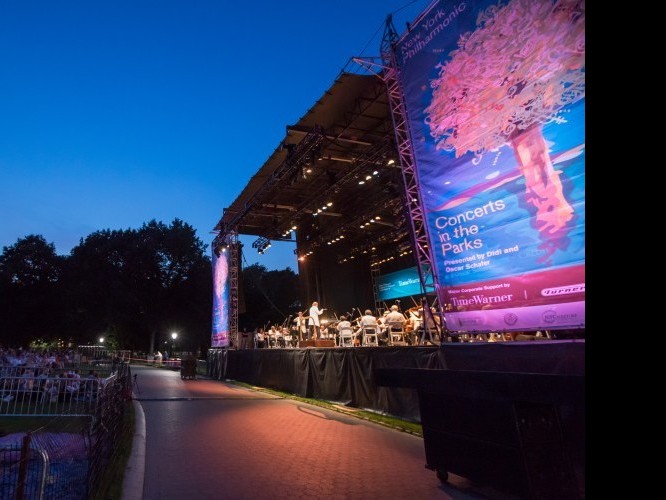New York Philharmonic Triumphs at Central Park
The New York Philharmonic performs a free concert in Central Park, part of a series of park concerts that ended Tuesday.

Thousands gather on Monday evening to hear the New York Philharmonic perform for free at the Great Lawn on Central Park. Amelia Pang/The Epoch Times
|Updated:






